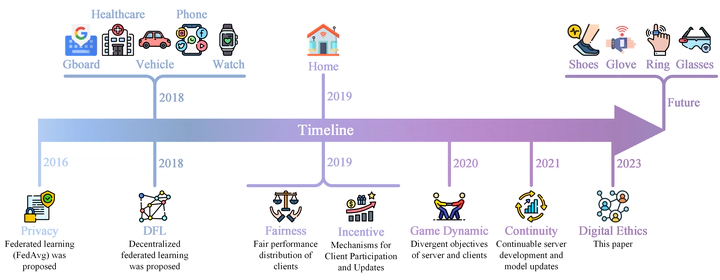
Abstract
The Internet of Things consistently generates vast numbers of data, sparking increasing concern over the protection of data privacy and the limitation of data misuse. Federated learning (FL) facilitates collaborative capabilities among multiple parties by sharing machine learning (ML) model parameters instead of raw user data, and it has recently gained significant attention for its potential in privacy preservation and learning efficiency enhancement. In this article, we highlight the digital ethics concerns that arise when human-centric devices serve as clients in FL. More specifically, challenges of game dynamics, fairness, incentive, and continuity arise in FL due to differences in perspectives and objectives between clients and the server. We analyze these challenges and their solutions from the perspectives of both the client and the server, and through the viewpoints of centralized and decentralized FL. Finally, we explore the opportunities in FL for human-centric IoT as directions for future development.